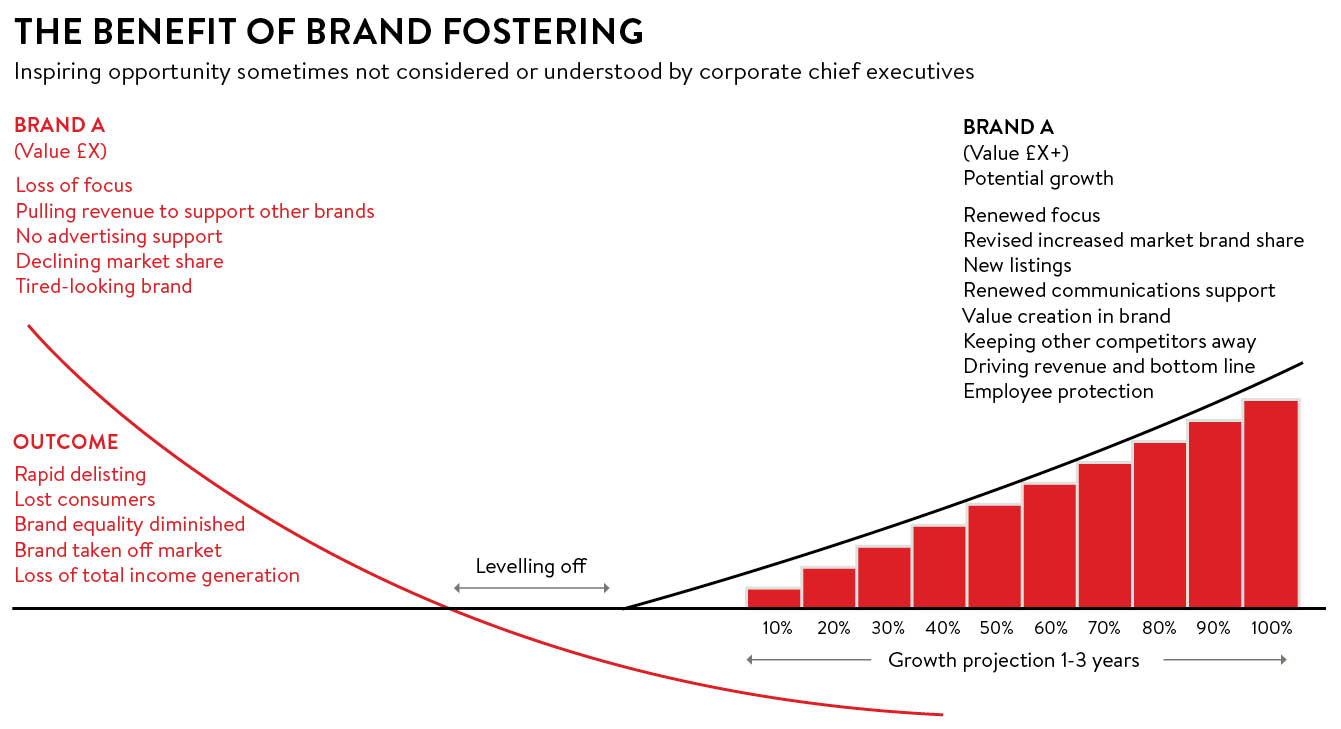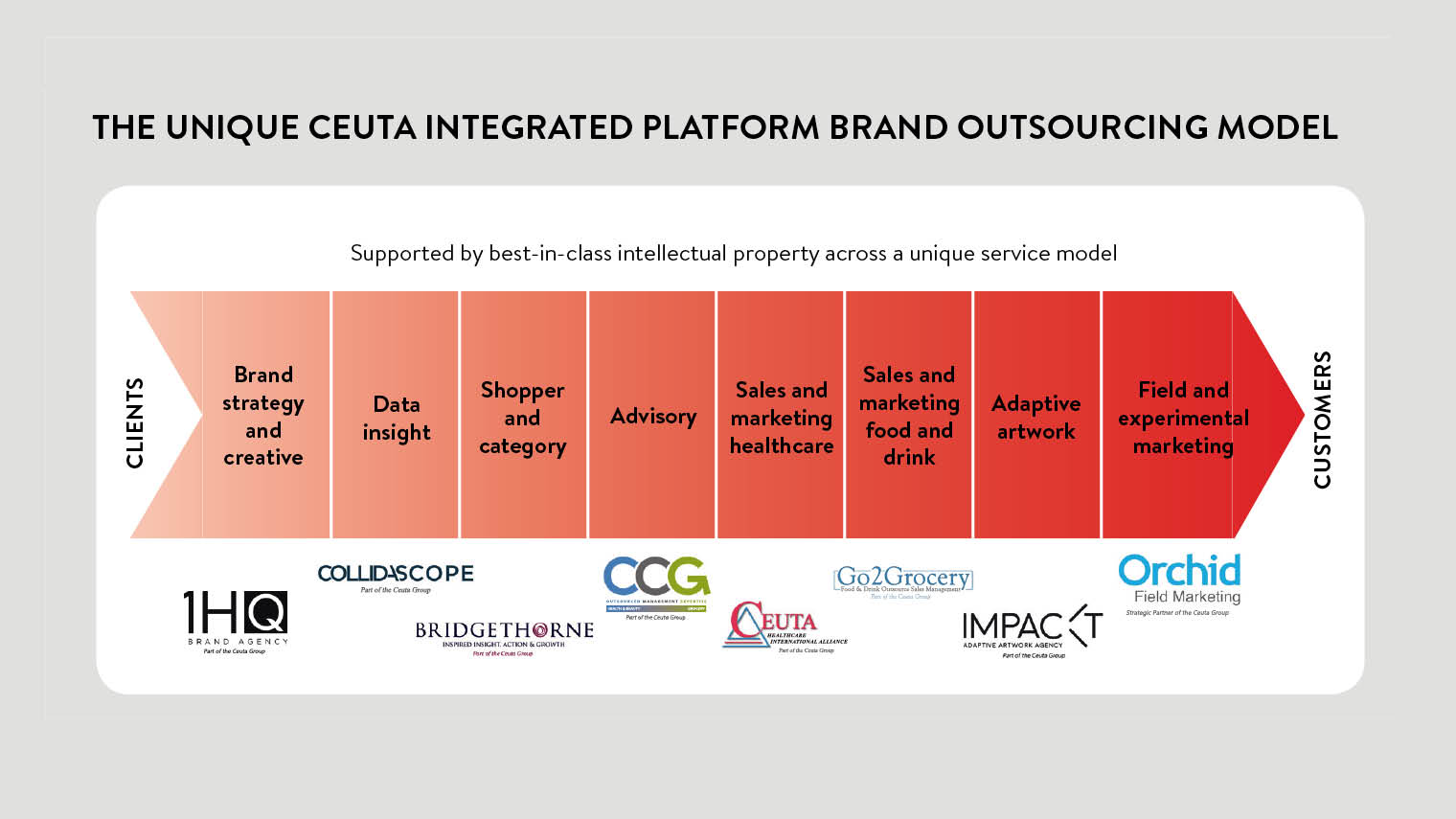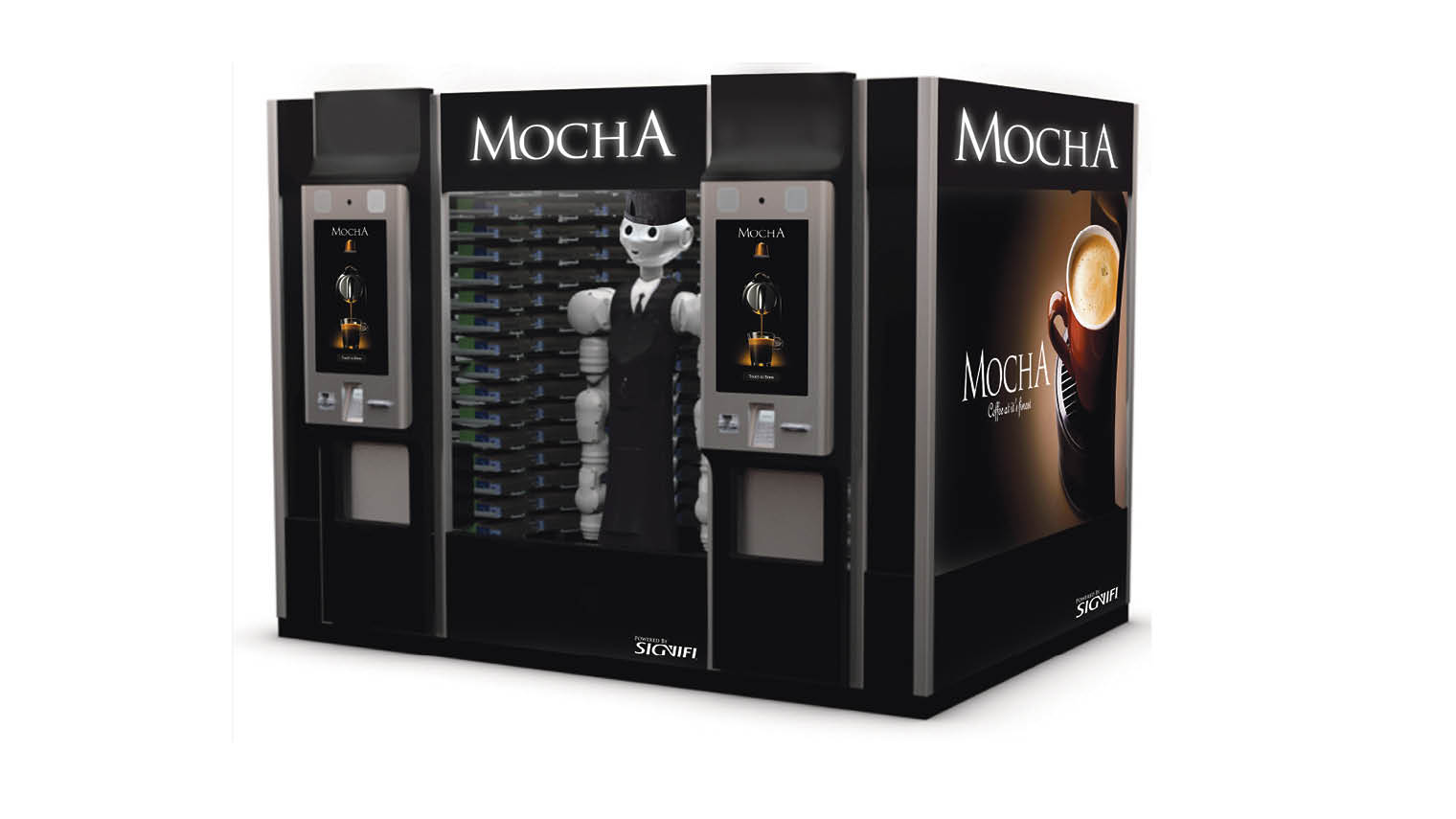A remarkable new sports accessory that went on sale in stores and online in the UK in July is already developing a legion of fans among sportspeople and the public in general. Enertor, which is worn and endorsed by Olympic champion Usain Bolt, fresh from his latest successes at Rio 2016, is a highly engineered shoe insole that reduces shock by nearly a half and recycles more than a third of the energy you put into every stride on the track.
But what is even more remarkable about Enertor is the way in which it’s been launched in the UK. Instead of the usual, cumbersome, costly process of building supply networks, identifying and briefing a marketing agency, and spending money on essential retail support, Enertor has adopted an innovative new form of outsourcing called brand fostering.

Edwin Bessant, group chief executive
Pioneered by integrated, innovative outsourcing provider Ceuta, brand fostering allows a company to outsource a brand which is being launched in a new territory where establishing the necessary commercial infrastructure would be time consuming, expensive and risky. It also enables UK and international companies to ensure non-core, lead or internally competing brands receive the focus that is necessary to allow them to produce continued returns and maintain their inherent brand value.
“Brand fostering is a great way to optimise the sales potential of a company’s entire portfolio of brands in order to maximise shareholder value,” says Edwin Bessant, Ceuta Group chief executive. Looking forward and identifying marketplace dynamics three years ahead lies at the very heart of the Ceuta philosophy. For Mr Bessant, company co-founder Annette D’Abreo and their team, this mindset has been key to the Ceuta’s success.
Brand fostering is a great way to optimise the sales potential of a company’s entire portfolio of brands in order to maximise shareholder value
Peter Burrows, Ceuta’s vice president for business development and mergers and acquisitions integration, points out that the recent high level of M&A activity has been driven in part by efforts by corporates to increase scale and develop synergies as a way of reducing costs.
“However, many of these deals simply result in larger, more complex brand portfolios and geographical footprints that require organisations to invest evermore in supporting brands and categories,” he says.
Brand fostering can also offer considerable benefits to heritage brands. “CEOs of more and more consumer-led companies are learning about the significant commercial benefits to their businesses, as many of them own long-established products that are often in danger of underperforming because they slip off the board’s radar and don’t receive the focus and investment they deserve,” explains Mr Burrows.

Annette D’Abreo, co-founder and managing director
As a heritage brand declines and cedes market share because of a lack of marketing support, it can end up losing the company money. However, once it’s fostered by Ceuta, the renewed focus it receives produces new listings, revitalised communication support and value creation. This increases sales, keeps competitors at bay and ultimately delivers greater profits to secure jobs and add to the value of the brand owner.
“When we foster it, we focus on a brand completely and develop it as an asset,” says Mr Burrows. “As well as investing in these brands, which are often well known, we’ll frequently re-engine them and look at them with fresh eyes. At Ceuta we treat each of them as an essential part of our business and we use our integrated platform to fulfil their potential.”

It’s this integrated platform – the first of its kind – that has enabled Ceuta to make such a success of a vast range of grocery and health and beauty brands, including Pampers Kandoo, Murine, Milton, Kwai, Vicks, Infacare, Louis Marcel, Murine, Wash & Go, Hermesetas, Dextro, Bonne Maman, Fisherman’s Friend and Granini juices.
To create this platform the company has acquired or built out eight new companies, each pre-eminent in its field, to provide every aspect of development and support a brand might need, and to add value to it. For example, 1HQ is a global brand agency that provides brand insight, develops strategic communications, delivers striking and appealing packaging that will stand out on the shelf, and creates engaging digital conversations with consumers. Its design for a Heinz tomato ketchup bottle saw a 10 per cent uplift in sales globally.
Bridgethorne are experts on point of purchase, crunching vast amounts of data to turn it into meaningful, actionable shopper and consumer insight. The Bridgethorne Shopper Index provides a unique measure of UK shopper behaviour while its My Perfect Store solution plans every aspect of store layout. The team at Ceuta Capability Group (CCG), meanwhile, use their many years of experience to offer specialist advisory support aimed at ensuring their grocery and health and beauty clients understand their markets, and position and launch their products effectively.
Orchard are experts in field and experiential marketing across sectors. Tailored to meet the needs of each client, their merchandising activities ensure products have consumer appeal on the shelf. They arrange sampling and demonstrations that engage shoppers and drive sales. Experiential marketing has become a key imperative for the future as consumers want more excitement and engagement with the brand.
Go2Grocery specialises in strategic outsourcing support for ambient grocery, confectionery, and food and drinks within the convenience, delivered wholesale and mainstream supermarket sectors. Ceuta has an international alliance network of similarly experienced, specialist outsourcing route-to-market and strategy support companies, which means it can help brands to expand in almost any region of the world.
The desire among global consumer-product manufacturers to expand their businesses into new international white-space markets, moves to reduce costly local market infrastructure and a requirement for brand support is taking outsourcing in an exciting new direction that has huge potential.
“We find the growing number of companies that outsource brands to us, whether they’re overseas-based businesses, which do not want UK bricks-and-mortar outlets, and whether they’re heritage, lead brands or new launches, they see us as a strategic, integral part of their business,” says Mr Bessant. Flexibility is key – brand owners can allow Ceuta to take a proportion of the profits from sales or they can license the brand to Ceuta completely, among other options.
“Whichever option they choose, brand owners know, if they come to sell a brand, they’ll be offering to the market something that’s enjoying sustained growth and is therefore far more appealing than a product that’s in decline,” says Mr Burrows.

Brand fostering represents an exciting new chapter in the development of outsourcing and it’s only logical that this chapter is being written by Ceuta.
As Mr Bessant concludes: “Looking forward and envisaging the commercial landscape three years hence is a key imperative for our business, ensuring we are fit for purpose and delivering a solution that meets our industry’s needs. We’ve put this at the very core of Ceuta – that’s why we’ll always be the thought leaders in the future of outsourcing.”
YOUR COFFEE SERVED BY ROBOT: THE FUTURE OF RETAIL

You’re out and about, and you want a cup of coffee. A vending machine might traditionally have been the last option on your list, but this particular device features a robot barista that expertly brews your flat white, serves it to you immaculately and can even recommend a roast to suit your palate.
We chose to partner with Ceuta because they have such a good understanding of retail, and how savvy and demanding customers are these days
Science fiction? Actually, it’s already science – and retail – fact. Automated retail technology represents the future of retail and will increasingly be seen in airports, office environments, shopping malls, travel terminals, hospitals, hotels and theme parks, among other locations. Already in “pop-up” shops, it has a value of around £2.2 billion in the UK and the market is growing.
Toronto-based Signifi is at the forefront of the automated retail industry, providing everything from food and drink to premium electronics, and from banking services to luxury goods, so it’s hardly surprising the company chose a cutting-edge outsourcing partner.
“We chose to partner with Ceuta because they have such a good understanding of retail, and how savvy and demanding customers are these days. With their international network, they also have a global reach,” says Shamira Jaffer, Signifi’s chief executive. “We have an affinity with them because our product represents the future of retail, and they’re also always looking ahead at where the market is going and what their clients need to be thinking about.”




